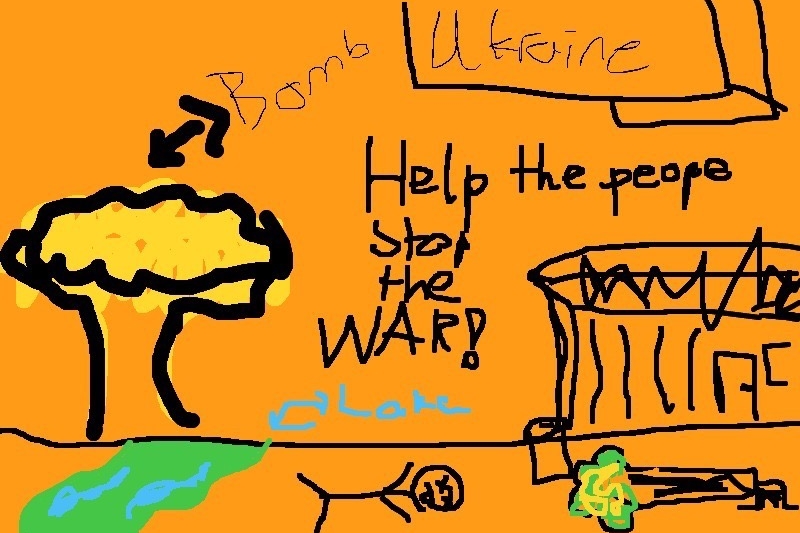
by Aralynn Abare McMane | 25 Feb 2022 | Conflict, Ukraine, Youth Voices
Editors around the world explain how they’re helping kids to understand and cope with the news as Russia invades Ukraine. From News-O-Matic, by a reader named Derin A week before Russia invaded Ukraine, editor Joyce Grant at Canada’s Teaching Kids News conducted...
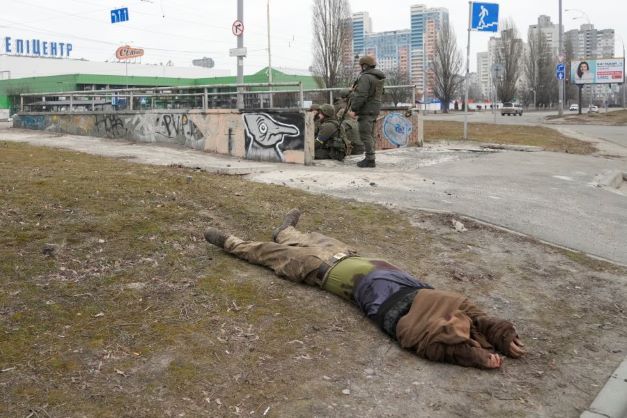
by Nelson Graves | 25 Feb 2022 | Conflict, Europe, Future of Democracy, Politics, Ukraine, World
Russia’s invasion of Ukraine threatens the global order that has spared us world war. In an era of nuclear weapons, our very survival could be at risk. A body of a dead soldier lies on the ground next to Ukrainian Army soldiers in Kyiv, Ukraine, 25 February 2022. (AP...
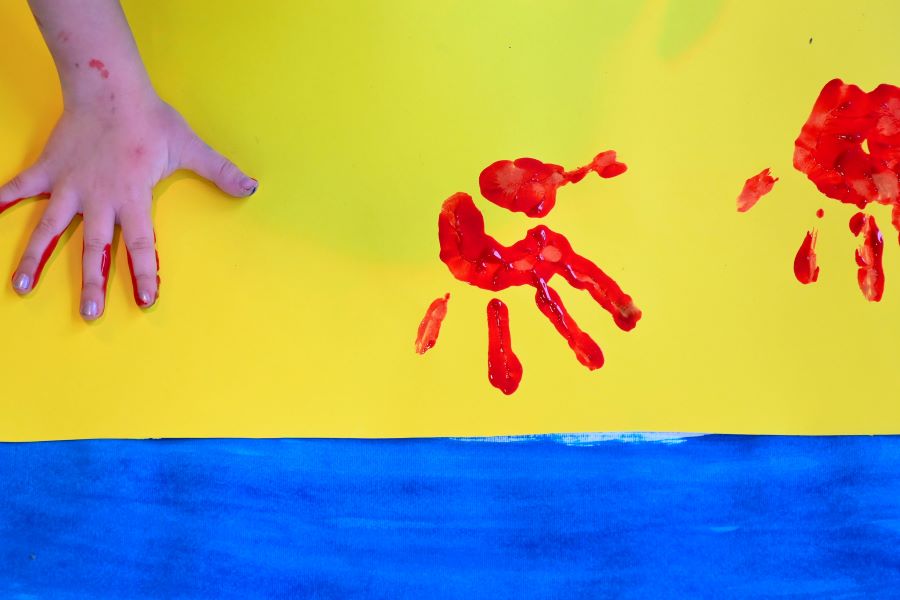
by News Decoder | 24 Feb 2022 | Conflict, Educators' Catalog, Europe, Future of Democracy, Joe Biden, Ukraine, World
We asked News Decoder correspondents why young people should care about Russia’s invasion of Ukraine. Here’s what they said. An Ukrainian child stamps her painted hand on the Ukrainian flag during a protest outside the Russian embassy in Beirut, Lebanon,...
Russia’s invasion of Ukraine dominates the news. With so much changing so rapidly, it can be difficult to get a big picture view of the context, implications and side effects of the attacks. When you live far away from the conflict, it can be difficult to know why you should care, with all the other problems in the world, and what — and who — to believe.
In this compilation, News Decoder correspondents offer different perspectives to consider about the war in Ukraine and potential consequences around the globe — and even in space. They bring decades of experience covering politics, foreign affairs and conflict — many having been based in Russia and Eastern Europe — to help place the invasion in a larger context. Their commentary provides a launching point for discussion.
Exercise: Ask students what questions they have about Ukraine and how the conflict might have an impact on your country.
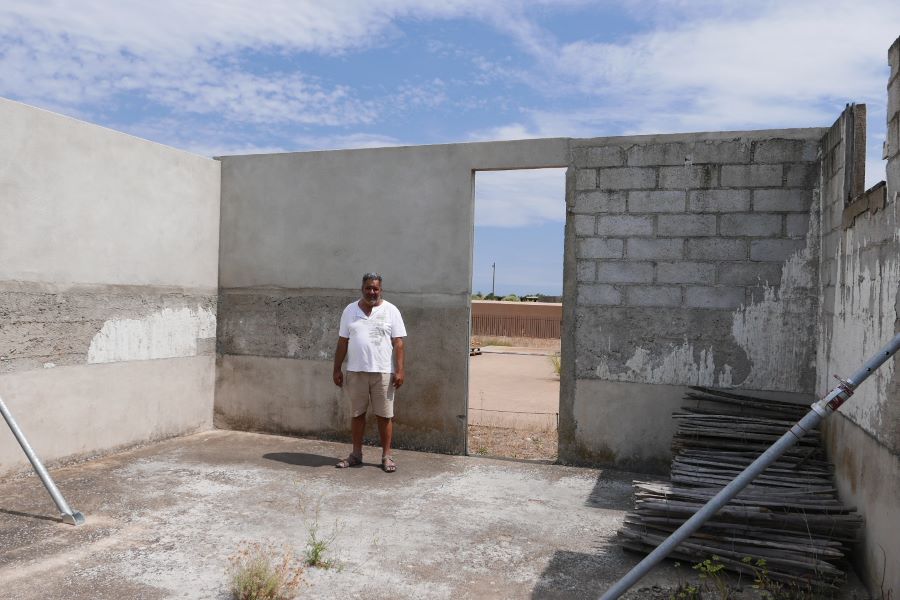
by Birgit Kaspar and Alistair Lyon | 21 Feb 2022 | Africa, Conflict, Europe, Human Rights, Politics
It’s been 60 years since Algeria won freedom. The nation’s former ruler, France, is still struggling with its colonial legacy, national identity and values. Abdelkrim Sid, son of a “harki” who fought for France in Algeria, stands in a derelict...
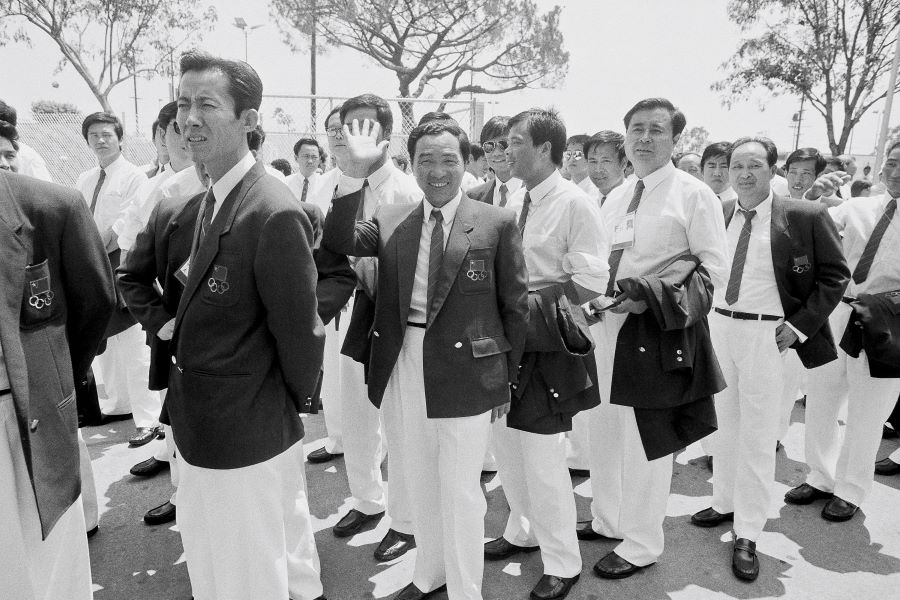
by Jonathan Sharp | 16 Feb 2022 | China, Europe, Eyewitness, Politics, Sport, United States
Fewer than four decades ago, an emerging China joined its first Olympic Games. Like today, geopolitics loomed large at the Los Angeles event. Members of the Chinese Olympic team line up before the opening ceremonies of the 1984 Summer Olympics in Los Angeles, 28 July...
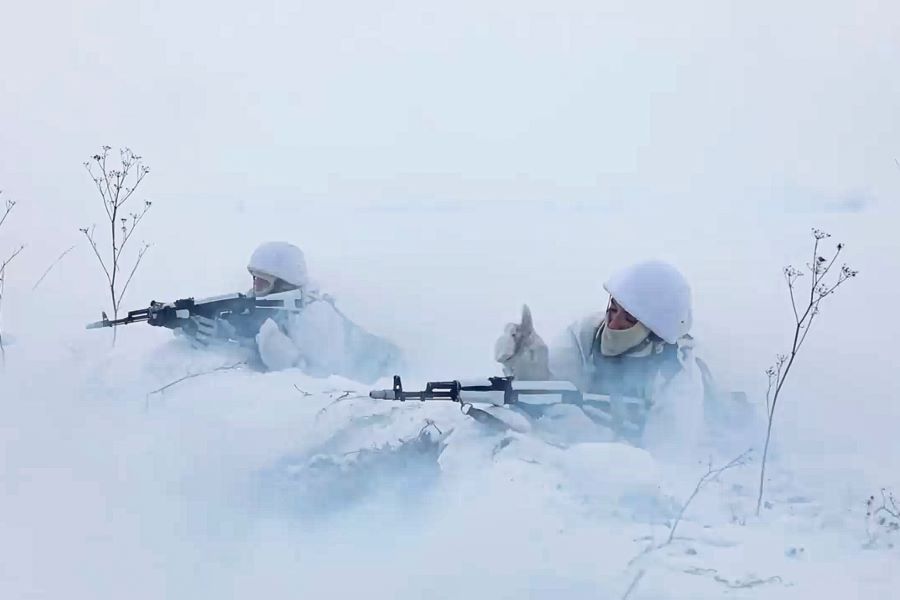
by Natasha Comeau | 14 Feb 2022 | Conflict, Decoders, Europe, Ukraine
Neighbors Russia and Ukraine share a common history that looms over Europe’s deepest security crisis in decades. In this image released by the Russian Defense Ministry Press Service on 2 February 2022, Russian soldiers attend military training at the Yurginsky...
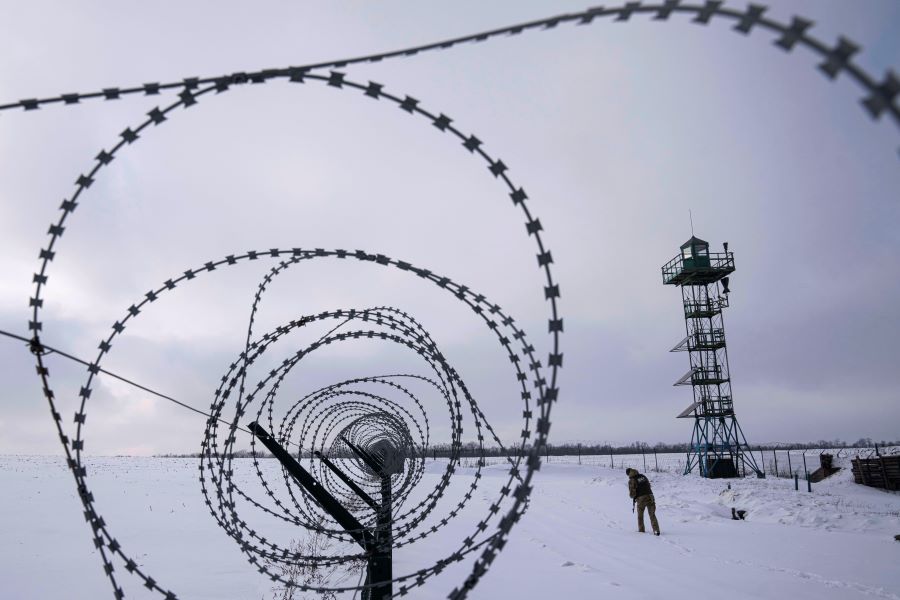
by Daniel Warner | 4 Feb 2022 | Conflict, Educators' Catalog, Europe, Joe Biden, Politics, Ukraine
Reminiscent of tensions during the Cold War, the Ukraine crisis represents the most serious East-West confrontation since the end of the Soviet Union. A Ukrainian guard patrols the border with Russia near Hoptivka village, Kharkiv region, Ukraine, 2 February 2022. (AP...
For a deeper dive into the history leading up to the war in Ukraine, consider this report from Daniel Warner, a political scientist, lecturer and expert in international organizations. While diplomatic negotiations have failed, the article provides an overview to decode historic ties between Russia and Ukraine, NATO’s actions, the potential impact on energy supply chains and thoughts on the future of the security architecture of international alliances.
Exercise: This article was written three weeks before the conflict began. Ask students to compare the theoretical discussion of conflict to what is happening in reality. What do they think was the tipping point for Russia to invade?
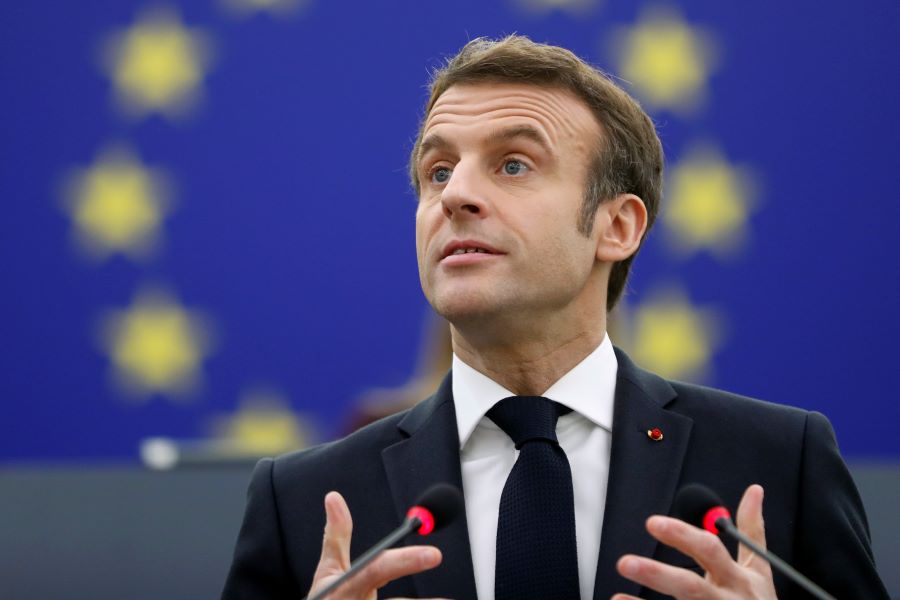
by Robert Holloway | 3 Feb 2022 | Europe, Government, Politics
French voters may have their minds on other matters ahead of April’s election, but President Emmanuel Macron stands firmly for a strong Europe. French President Emmanuel Macron at the European Parliament in Strasbourg, France, 19 January 2022 (Bertrans Guay,...
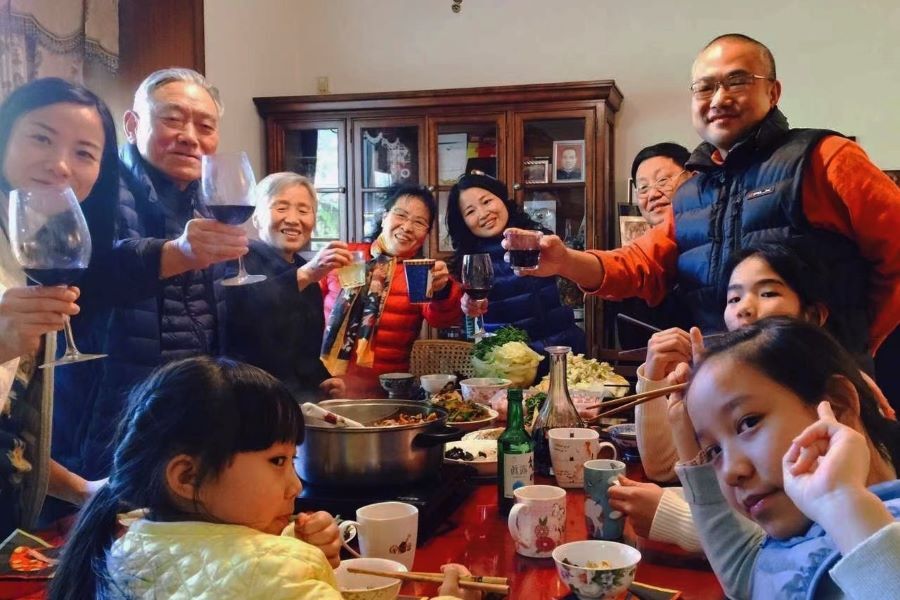
by Li Keira Yin | 2 Feb 2022 | China, Contest winners, Discovery, Identity, Personal Reflections, Student Posts, Thacher School, Youth Voices
Our family used to gather in joy around my grandfather’s couch. He and his sofa are now gone, and I wonder if home will ever be the same. Taken in Shenzhen, China in 2013. The author is hiding behind a cousin, second from right. (All photos courtesy of Li Keira...
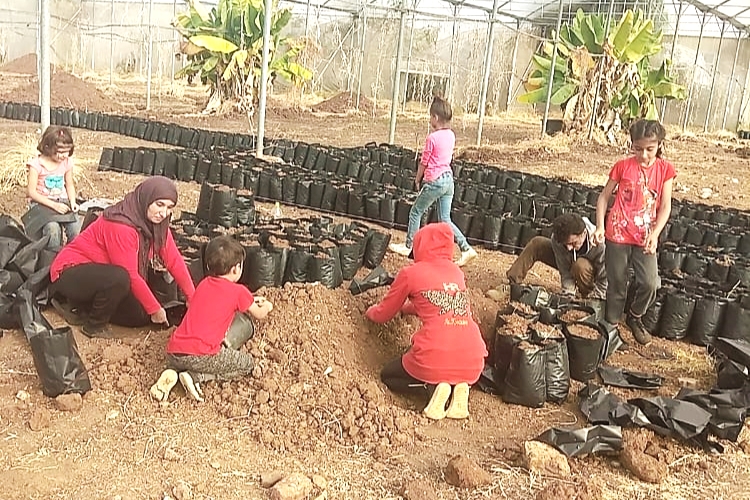
by Katharine Lake Berz | 1 Feb 2022 | Conflict, Educators' Catalog, Human Rights, Immigration, Middle East, Refugees, University of Toronto Journalism Fellows
Lebanon is suffering one of the worst crises the world has seen in 150 years. The children in one Syrian refugee family have little choice but to work. The Hemo family working in a greenhouse where they earn $10 a day for their labour, November 2021 (All photos by...
More than half a million refugees have fled Ukraine since war broke out one week ago, with more still fleeing the fighting. Throughout history, displacement has gone hand-in-hand with conflict. Decades of violence in Afghanistan displaced more than 2.6 million refugees, with thousands more fleeing last autumn after the U.S. troop withdrawal. (Some, like correspondent Zamir Saar, sought refuge in Ukraine.) According to the UNHCR, since 2011, the crisis in Syria has forced 6.8 million people to leave their country, with another 6.7 million internally displaced.
Now, an estimated 1.5 million Syrian refugees are living in Lebanon, including Sanam Hemo, her husband, and their seven children. While Lebanon provides safety, the country is experiencing a dire economic crisis, leaving no choice but for all family members — even their four-year-old — to work. Katherine Lake Berz, a journalism fellow at the University of Toronto, gives an up-close account of the reality of refugee life for Sanam’s family and how organizations like UNICEF Canada are seeking solutions to child labor.
Exercise: Ask students to put themselves in Sanam and Othman’s shoes. What would they do differently? What would they do the same?










